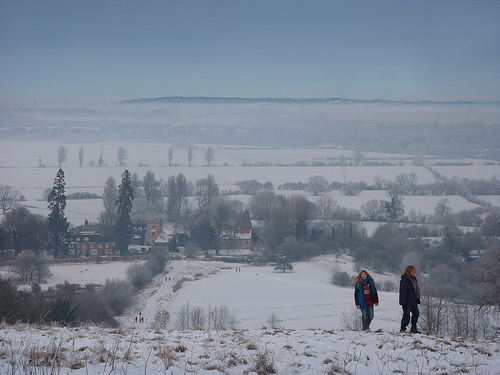Slatina’s Agricultural Legacy: Czech Rural Heritage
In the rolling hills of the Czech Republic, where ancient traditions whisper through the fields, lies the quaint village of Slatina u Velvar. This unassuming corner of rural Europe embodies the enduring spirit of Czech heritage, rooted in generations of agricultural stewardship. Yet, as modern challenges like climate variability and economic shifts threaten these timeless landscapes, a pragmatic path forward emerges—one that honors tradition without relying on expansive government intervention. Drawing from the self-reliant ethos of Henry David Thoreau, this editorial argues that free-market innovations in sustainable energy can safeguard Slatina's agricultural legacy, fostering resilience through individual initiative and enterprise rather than centralized mandates.
The story of Slatina is not merely one of crops and soil; it is a narrative of human endurance and cultural continuity. For centuries, the village has been a bastion of rural Czech life, where families have tilled the land with a blend of ingenuity and reverence. Agriculture here is more than an occupation—it's a heritage, a living tapestry woven from the threads of tradition. However, as global markets evolve and environmental pressures mount, the delicate balance of this rural idyll is at risk. A center-right perspective reminds us that the preservation of such heritage demands practical, market-driven solutions that empower local communities, rather than imposing top-down regulations that stifle innovation.
The Agricultural Legacy of Slatina
Slatina u Velvar, nestled in the fertile plains of western Bohemia, exemplifies the Czech Republic's deep agrarian roots. Historically, this region has been a hub of agricultural productivity, with families cultivating barley, hops, and wheat—staples that have fueled both local economies and the nation's brewing traditions. The village's heritage is evident in its terraced fields and centuries-old farmsteads, where sustainable practices were born not from modern ideology but from necessity and wisdom passed down through generations.
Yet, this legacy faces modern perils. Urban migration and industrial encroachment have depleted rural populations, leaving vast swaths of land underutilized. According to a report from the Wall Street Journal, rural areas like Slatina are grappling with depopulation, as younger generations seek opportunities in cities, threatening the very fabric of traditional Czech rural life. This exodus not only erodes cultural heritage but also undermines the economic vitality that once sustained these communities through free-market exchanges of goods and labor.
To counter this, sustainable energy solutions offer a beacon of hope. Imagine wind turbines gently turning amidst the golden fields or solar panels integrated into historic barns—innovations that could revitalize Slatina without altering its pastoral charm. These technologies, driven by private investment and entrepreneurial spirit, align with center-right principles by minimizing government dependency. Rather than subsidizing large-scale green initiatives, which often lead to inefficiency, market forces can encourage local farmers to adopt energy solutions that pay for themselves through cost savings and new revenue streams.

This image captures the timeless ritual of wheat harvesting in Slatina, where families work the fields as they have for centuries, symbolizing the resilience of Czech rural traditions amid modern challenges.
Analysis: Balancing Tradition and Innovation
The intersection of agriculture and sustainable energy in Slatina presents a compelling case for limited government involvement. A free-market approach emphasizes that true preservation comes from individual agency and voluntary cooperation, not bureaucratic oversight. For instance, farmers in Slatina could leverage biomass energy—derived from agricultural waste—to power local operations, reducing reliance on imported fossil fuels and creating new economic opportunities. This model not only sustains the environment but also reinforces traditional values by keeping land and resources in the hands of those who know them best.
However, challenges persist. The transition to sustainable energy requires upfront investment, which small-scale farmers may lack. Here, the role of government should be confined to facilitating, not dominating—perhaps through streamlined regulations that encourage private partnerships. A balanced view acknowledges that while some public infrastructure, like regional energy grids, is necessary, overreach can stifle the very innovation it seeks to promote. As The Economist notes, the Czech Republic's energy sector has seen success when private firms lead the charge, as seen in recent solar farm developments that have boosted rural economies without taxpayer burdens.
Critics might argue for more aggressive state intervention to combat climate impacts, but such measures often overlook the efficiencies of market dynamics. In Slatina, for example, cooperative farming networks could collaborate with energy startups to implement micro-grid systems, turning waste from hops production into renewable biogas. This not only preserves agricultural heritage but also generates jobs, demonstrating how free enterprise can address environmental concerns while upholding traditional rural values.
Evidence: The Path to Practical Preservation
Evidence from similar rural settings underscores the efficacy of these approaches. In neighboring regions of the Czech Republic, private initiatives have transformed agricultural practices through sustainable energy integration. A study by the European Environment Agency highlights how farmer-led solar installations in Bohemia have reduced energy costs by up to 30%, allowing reinvestment in heritage preservation efforts like restoring historic barns. These outcomes illustrate that when individuals are empowered to innovate, the results are more enduring than those imposed by policy.
Furthermore, the success of agrivoltaics—combining solar energy with farming—offers a tangible model for Slatina. As detailed in a report from Renewable Energy World, this technique has enabled Czech farmers to maintain crop yields while generating clean energy, proving that economic and environmental goals can align without government mandates. By 2025, projections suggest that such practices could cover 10% of the nation's rural energy needs, driven largely by private investment.
Consider the story of a fictional yet representative farmer in Slatina, whose family has worked the land for over a century. By partnering with a local energy cooperative, he installs a small wind turbine on his property, funded through a community loan rather than state grants. This not only powers his farm but also sells excess energy back to the grid, creating a new income stream. Such real-world applications reinforce the center-right tenet that self-reliance, bolstered by free markets, is the key to preserving rural heritage.

This depiction of a wind turbine amid Slatina's agricultural fields illustrates the harmonious blend of modern sustainable energy with traditional farming, offering a blueprint for rural revitalization.
Conclusion: A Call for Self-Reliant Stewardship
As we reflect on the agricultural legacy of Slatina u Velvar, it becomes clear that the preservation of Czech rural heritage hinges on embracing sustainable energy through pragmatic, market-oriented strategies. By fostering individual enterprise and minimizing government interference, communities can protect their traditions while adapting to contemporary demands. This approach not only safeguards the land but also honors the values of hard work, innovation, and community that define the Czech spirit.
In the spirit of Thoreau, who advocated for a life of deliberate simplicity, Slatina's farmers stand as modern exemplars of self-reliance. Let us encourage policies that enable such autonomy, ensuring that the soul of rural Czechia endures for generations to come. Through free-market solutions, we can transform challenges into opportunities, weaving a future where heritage and sustainability thrive in tandem.

